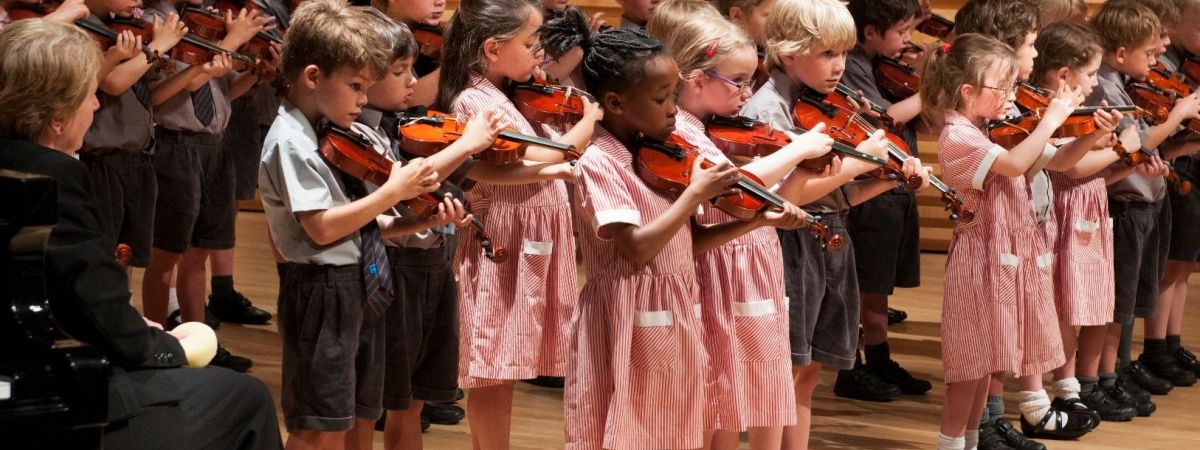The challenge of providing free, excellent instrumental tuition
The benefits of learning a musical instrument are well-documented, with research demonstrating a strong link with cognitive, emotional and social development.
The famous violinist, Yehudi Menuhin, suggested that everyone should have the right to access music: ‘I can only think of music as something inherent in every human being – a birthright.’
…but are schools doing enough to ensure that excellent opportunities exist for all?
In schools with specialist music teachers (and sadly, this is certainly not the case for every primary school), curriculum music can be delivered very successfully as a whole class subject. Pupils can acquire skills in playing class percussion, improve their singing ability, and increasingly adopt technology, to perform and compose in the classroom setting.
However, while schools are able to deliver a range of exciting classroom activities, they rarely offer the opportunity to master an instrument, free of charge as part of the music curriculum. While lessons may be available privately, the cost of tuition and equipment means that learning an instrument is often beyond the financial reach of disadvantaged children, meaning that the benefits of a culture-rich educational experience becomes the preserve of those from more affluent backgrounds.
Although there is no obvious solution to improving access for all, Cobham Free School (CFS) is demonstrating that with some creative-thinking, there is scope to overcome some of the challenges and offer free, high quality instrumental tuition for all students, consistent with the school motto, “optimum omnibus”, – ‘the best for all’.
We are very fortunate that we have the support of the world-famous Yehudi Menuhin School (YMS) and deploy the skills of their outreach teachers and post A-level students to provide small group violin and cello lessons to all our pupils in Key Stage 1. We have also engaged in-house specialist teachers to enable the delivery of this string programme in Key Stage 2 and allow for continuity and progression.
We are mindful that group tuition cannot replicate some of the advantages of individual lessons but continue to explore ways to improve and refine what we are able to offer. This year, for example, we are making changes to improve the structure of our programme, including a greater focus on assessment and differentiation, and giving more consideration to individual interests.
At Key Stage 3 we have extended our offer to include woodwind group lessons and are funding private one-to-one tuition in a wide range of instruments for music scholars and pupil premium students displaying particular aptitude.
We also recognise the importance of a varied and rich extra-curricular programme which provides practical opportunities for our students to apply their instrumental skills, including ‘tea concerts’ each half term and an annual appearance for our youngest violinists at The Menuhin Hall.
The implementation of a small group tuition scheme from infants to lower secondary may not be for every school and indeed does require the collaboration of colleagues prepared to be flexible with timetables. However, at CFS there is also an appreciation that the skills acquired in music lessons may impact positively on the achievement of pupils across the whole school curriculum.
Other schools are launching similarly creative projects. Bedford Free School, for example, give all their students 2 lessons a week in Key Stage 3, and teach them violin or guitar in this time. They have even got the local Salvation Army to come in every week to teach a group of students brass instruments as well. And all of this is completely free to children, as they, like us, believe it is a core entitlement and not a nice-to-have.
To conclude, excellence in music education should not be the preserve of the affluent, and indeed, there may be some talented, gifted individuals from disadvantaged backgrounds who are yet to be discovered… perhaps even the next Yehudi Menuhin…
The views expressed here do not necessarily reflect those of PTE or its employees.
